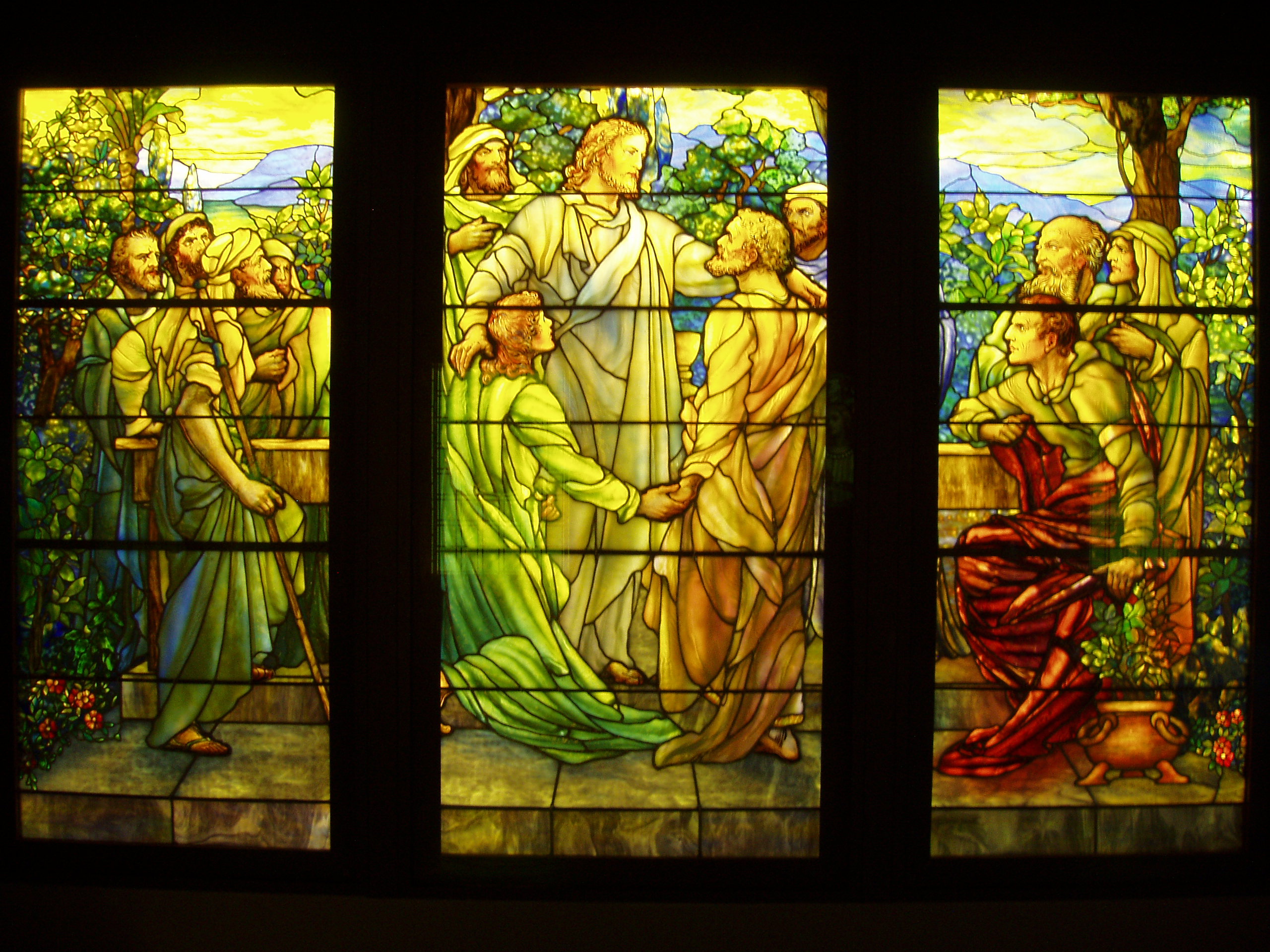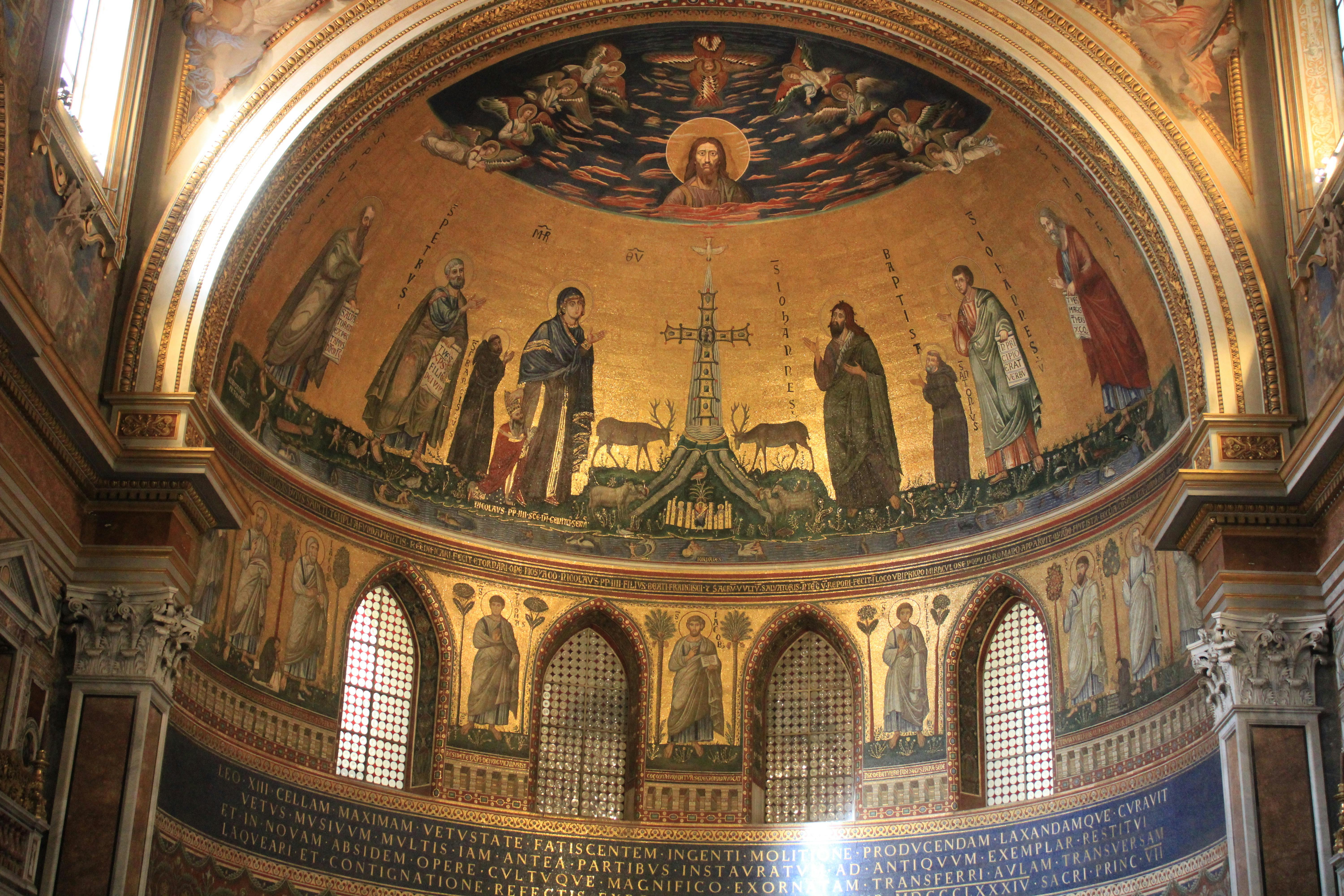The story in today’s Gospel always strikes me as a dramatic moment in the life of Christ, when Jesus was not welcomed into the Samaritan village. Two of my favorite followers of Jesus, the “Sons of Thunder”, James and John, want revenge for the way Jesus is being treated. When I read the passage, my heart often agrees with them, “yeah, let’s call down that fire since they didn’t welcome Jesus”. And yet, there is more to reflect on in this reading. We can see that Jesus came for the lost, the forgotten, the people who do not know the love of the Lord. He doesn’t want to smite us, but to save us!
Over the last few years, I have come to appreciate that the Lord is about planting seeds of faith. He desires that we be open to Him and slowly learn to trust Him in all matters. This trust is built over time, and the more that we hand over our free will, the more our will is in line with God. Our free will is what blocks us from seeing, hearing, and knowing the truth of our Lord. How often has our “good-hearted desire” made matters worse? How often have we “given them a piece of our mind” and left feeling worse about what we said and how we said it?
Our Lord shows us that He desires redemption and transformation versus fire and fury. Jesus knows that after His Resurrection, the people will recall this day and the missed opportunity and hopefully come to faith. He plants seeds and is a patient tiller of the field. He offers us grace from the moment of our Baptism. He desires that these seeds be watered and cultivated, but we must rely on the Lord’s timing, not ours.
Dear Lord, increase my faith and allow me to be a vessel of love, not wrath, so that others may be transformed in You.
La historia del Evangelio de hoy siempre me ha parecido un momento dramático en la vida de Cristo: cuando Jesús no fue recibido en la aldea samaritana. Dos de mis seguidores favoritos de Jesús, los “Hijos del Trueno”, Santiago y Juan, quieren venganza por el trato que reciben. Al leer el pasaje, mi corazón suele estar de acuerdo con ellos: “Sí, hagamos descender ese fuego, ya que no recibieron a Jesús”. Sin embargo, hay más en qué reflexionar en esta lectura. Vemos que Jesús vino por los perdidos, los olvidados, quienes no conocen el amor del Señor. ¡No quiere destruirnos, sino salvarnos!
En los últimos años, he llegado a comprender que el Señor se dedica a sembrar semillas de fe. Desea que nos abramos a Él y que poco a poco aprendamos a confiar en Él en todo. Esta confianza se va aumentando con el tiempo, y mientras más le entregamos el libre albedrío, más alineamos nuestra voluntad con la de Dios. El libre albedrío es lo que nos impide ver, oír y conocer la verdad de nuestro Señor. ¿Cuántas veces nuestro “buen deseo” ha empeorado las cosas? ¿Cuántas veces hemos forzado nuestras opiniones y nos ha hecho sentir peor por lo que dijimos y cómo lo dijimos?
Nuestro Señor nos muestra que desea redención y transformación, no fuego y furia. Jesús sabe que después de su Resurrección, la gente se acordará de este día y la oportunidad perdida, y ojalá llegará a la fe. Él siembra semillas y es un labrador paciente. Nos ofrece la gracia desde el momento de nuestro Bautismo. Desea que estas semillas sean regadas y cultivadas, pero debemos confiar en el tiempo del Señor, no en el nuestro.
Señor Jesús, aumenta mi fe y permíteme ser un instrumento de amor, no de ira, para que otros puedan ser transformados por Ti.
 Emily Jaminet is a Catholic author, speaker, radio personality, wife, and mother of seven children. She earned a bachelor’s degree in mental health and human services from the Franciscan University of Steubenville. She is the co-founder of www.inspirethefaith.com and the Executive Director of The Sacred Heart Enthronement Network www.WelcomeHisHeart.com. She has co-authored several Catholic books and her latest one, Secrets of the Sacred Heart: Claiming Jesus’ Twelve Promises in Your Life, came out in Oct. 2020. Emily serves on the board of the Columbus Catholic Women’s Conference, contributes to Relevant Radio and Catholic Mom.com.
Emily Jaminet is a Catholic author, speaker, radio personality, wife, and mother of seven children. She earned a bachelor’s degree in mental health and human services from the Franciscan University of Steubenville. She is the co-founder of www.inspirethefaith.com and the Executive Director of The Sacred Heart Enthronement Network www.WelcomeHisHeart.com. She has co-authored several Catholic books and her latest one, Secrets of the Sacred Heart: Claiming Jesus’ Twelve Promises in Your Life, came out in Oct. 2020. Emily serves on the board of the Columbus Catholic Women’s Conference, contributes to Relevant Radio and Catholic Mom.com.
Feature Image Credit: Anastasia Vityukova, unsplash.com/photos/grayscale-photography-of-woman-hugging-another-woman-nOwPtkKVUXM
The views and opinions expressed in the Inspiration Daily blog are solely those of the original authors and contributors. These views and opinions do not necessarily represent those of Diocesan, the Diocesan staff, or other contributors to this blog.




 Tami Urcia is a midwestern gal from a large Catholic family. As a young adulthood she was a missionary in Mexico, where she studied theology and philosophy. After returning stateside bilingual, she gained a variety of work experience, traveled extensively and finished her Bachelor’s Degree at Brescia University. She loves organizing and simplifying things, watching her children play sports, deep conversations with close family and friends and finding unique ways to brighten others’ day with Christ’s love. She works full time at Diocesan in the Software Department and manages the Inspiration Daily reflections. She is also a contributing writer on
Tami Urcia is a midwestern gal from a large Catholic family. As a young adulthood she was a missionary in Mexico, where she studied theology and philosophy. After returning stateside bilingual, she gained a variety of work experience, traveled extensively and finished her Bachelor’s Degree at Brescia University. She loves organizing and simplifying things, watching her children play sports, deep conversations with close family and friends and finding unique ways to brighten others’ day with Christ’s love. She works full time at Diocesan in the Software Department and manages the Inspiration Daily reflections. She is also a contributing writer on 
 Felix Urcia was born in Lima, Peru. He moved the U.S. to complete his college degree in Computer Science at Northern Kentucky University. He is passionate about his faith, his family, education and soccer. When he is not homeschooling and caring for his young children he enjoys personal programing projects and sports analysis. He and wife live in a small town in Western Michigan where they enjoy spending time with their five children.
Felix Urcia was born in Lima, Peru. He moved the U.S. to complete his college degree in Computer Science at Northern Kentucky University. He is passionate about his faith, his family, education and soccer. When he is not homeschooling and caring for his young children he enjoys personal programing projects and sports analysis. He and wife live in a small town in Western Michigan where they enjoy spending time with their five children.
 Christine Arata is a San Francisco, California native. She lives a few blocks away from the ocean and a park. She finds nature inspiring. Her cat brings her comfort. She loves being creative not only with her writing but with almost everything, including her home cooking. Her studies in the Catholic faith are ongoing. In 2019, when she discovered St. Hildegard of Bingen was underrepresented by Catholics, she found a purpose. Her latest website, St. Hildegard’s Wisdom features blog posts about all of that:
Christine Arata is a San Francisco, California native. She lives a few blocks away from the ocean and a park. She finds nature inspiring. Her cat brings her comfort. She loves being creative not only with her writing but with almost everything, including her home cooking. Her studies in the Catholic faith are ongoing. In 2019, when she discovered St. Hildegard of Bingen was underrepresented by Catholics, she found a purpose. Her latest website, St. Hildegard’s Wisdom features blog posts about all of that: 


 Kate Taliaferro is an Air Force wife and mother. She is blessed to be able to homeschool, bake bread and fold endless piles of laundry. When not planning a school day, writing a blog post or cooking pasta, Kate can be found curled up with a book or working with some kind of fiber craft. Kate blogs at
Kate Taliaferro is an Air Force wife and mother. She is blessed to be able to homeschool, bake bread and fold endless piles of laundry. When not planning a school day, writing a blog post or cooking pasta, Kate can be found curled up with a book or working with some kind of fiber craft. Kate blogs at 
 Kathryn Mulderink, MA, is married to Robert, Station Manager for Holy Family Radio. Together they have seven children (including Father Rob), and eleven grandchildren. She is President of the local community of Secular Discalced Carmelites and has published five books and many articles. Over the last 30 years, she has worked as a teacher, headmistress, catechist, Pastoral Associate, and DRE, and as a writer and voice talent for Catholic Radio. Currently, she serves the Church by writing and speaking, and by collaborating with various parishes and to lead others to encounter Christ and engage their faith. Her website is
Kathryn Mulderink, MA, is married to Robert, Station Manager for Holy Family Radio. Together they have seven children (including Father Rob), and eleven grandchildren. She is President of the local community of Secular Discalced Carmelites and has published five books and many articles. Over the last 30 years, she has worked as a teacher, headmistress, catechist, Pastoral Associate, and DRE, and as a writer and voice talent for Catholic Radio. Currently, she serves the Church by writing and speaking, and by collaborating with various parishes and to lead others to encounter Christ and engage their faith. Her website is 
 Kimberly Andrich writes from the perspective of having a hidden, chronic illness and experiencing a deep, continuous conversion through being yoked to Jesus in the day-to-day trials and joys of life. She is a wife, mother of 5, and daughter of the King. Kimberly also writes for
Kimberly Andrich writes from the perspective of having a hidden, chronic illness and experiencing a deep, continuous conversion through being yoked to Jesus in the day-to-day trials and joys of life. She is a wife, mother of 5, and daughter of the King. Kimberly also writes for 
 Merridith Frediani loves words and is delighted by good sentences. She also loves Lake Michigan, dahlias, the first sip of hot coffee in the morning, millennials, and playing Sheepshead with her husband and three kids. She writes for Catholic Mom, Diocesan.com, and her local Catholic Herald. Her first book Draw Close to Jesus: A Woman’s Guide to Adoration is available at Our Sunday Visitor and Amazon. You can learn more at
Merridith Frediani loves words and is delighted by good sentences. She also loves Lake Michigan, dahlias, the first sip of hot coffee in the morning, millennials, and playing Sheepshead with her husband and three kids. She writes for Catholic Mom, Diocesan.com, and her local Catholic Herald. Her first book Draw Close to Jesus: A Woman’s Guide to Adoration is available at Our Sunday Visitor and Amazon. You can learn more at 